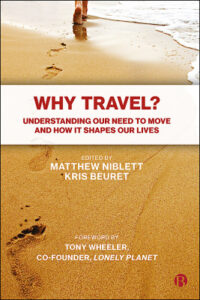Stephen Bayley: The death of travel?
31st July 2014
At the ITC’s Annual Lecture earlier this month, Stephen Bayley gave an impassioned view of the decline of travel. Echoed in his recent article in The Independent ‘Let’s put the fantasy back into travel’, Bayley argued that the key motivating factor behind much human travel is ‘fantasy’, an enchantment which travel is losing amongst the rise of cheap flights, crammed commuter carriages, and carbon copy cities. Travel, Bayley argues, is losing its appeal and, in a world of increasing technological alternatives to physical travel (alongside a growing recognition of its environmental costs), the seemingly inexorable rise in demand for travel may have peaked. The smart, Bayley declared, would stay at home and Crossrail would be finished just in time for it to be totally useless because no one would be crazy enough to commute to work anymore.
Whilst such arguments were perhaps more to provoke discussion – and they did – than hard predictions of the future, Bayley touched on some crucial issues about the role of psychology, technology and culture in shaping our travel desires, and about changing trends in behaviour including home-working, ‘staycations’, ‘slow travel’ and ‘peak car’. Recent surveys have shown, Bayley explained, that teenagers value smartphones over cars – mobility and access are still a crucial part of the strive for freedom but these, it seems, can now be virtual rather than physical.
Ultimately, discussions like this highlight the complexity and importance of the many motivations that underpin human travel: a better understanding of why we travel will help us to better predict future travel behaviour and thus how we can better meet the needs of the future. The ITC’s Why Travel? project aims to improve our understanding and to open the debate to a wide audience by bringing together experts from across the biological and social sciences, arts and humanities. For more information on the project see our website www.whytravel.org. Watch Stephen Bayley’s speech (below), or take a look at some other perspectives on our what the experts say page.


